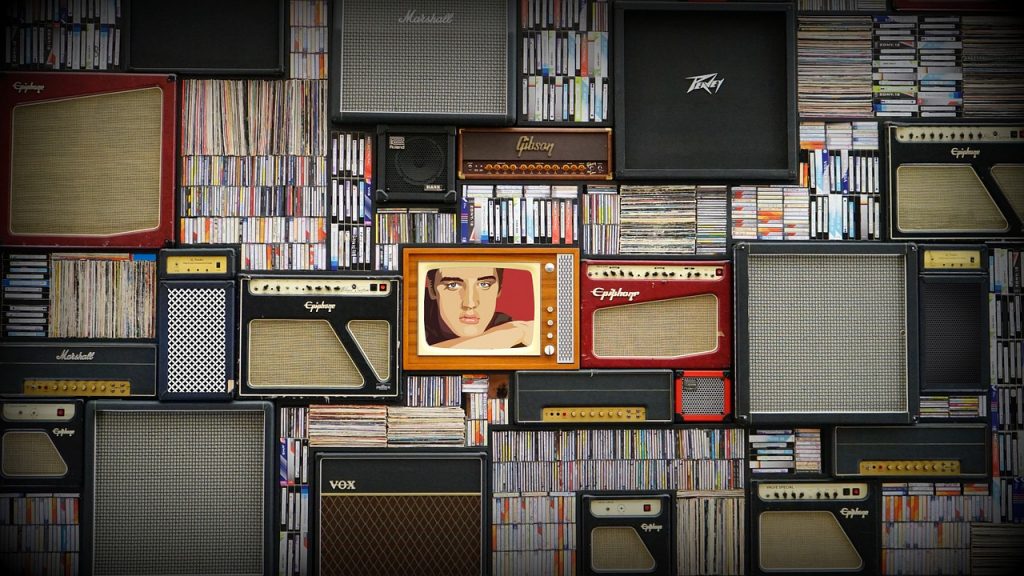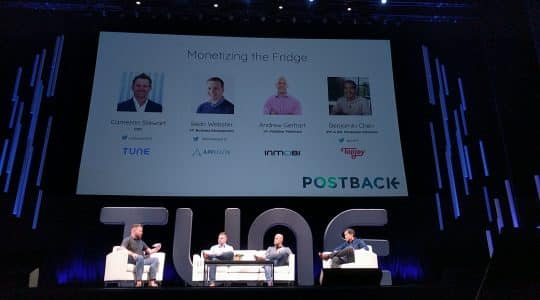
The one thing I know from going to the Consumer Electronics Show over the past few years is that every time you go, you will find at least one Chinese company that you’ve never heard of … and that makes just about every kind of electronics gadget you can imagine.
(Oh and CES will drain every last drop of blood out of your body … but you’ll be happy that it did.)
This year that one Chinese company was Haier.
If the name sounds vaguely familiar, that’s because Haier bought General Electric’s appliance business in 2016. And if it doesn’t, that’s because the company hasn’t really announced itself under its own brand widely.
I did a walk-through of the company’s booth, and it’s worth skimming through despite the extremely authentic CES chaos, bustle, and noise.
I never knew it, but apparently Haier has everything you need for a smart home:
- smart air quality and humidity management
- smart heating
- smart water purification
- smart water heating
- smart power management (solar, grid, etc.)
- smart kitchen, with an Alexa-powered fridge
- smart bathroom, with a smart mirror and, yes, a smart toilet
- smart washer and dryer in your laundry … and yes … fabric care
- smart clothes management
- smart entertainment/relaxation
- smart health
- smart room monitoring
- smart safety (water leakage, gas sensors, people detectors, fire sensors, doors and windows closed/locked sensors)
Smart home, smart everything: where does mobile fit?

That’s a lucky 13 smarts, in case you’re counting.
Of course, whether all this is adequately tied in, connected, built together, and fully interoperable is another question — and a completely valid one. But the sheer scope of the vision and the massive breadth of even this early stage of execution is impressive.
Alexa is built in, Google Assistant is built in, and Chromecast is built in. (Building in smart voice assistant technology costs only $14 now.)
It begs the question: what’s the future of mobile in a smart internet-of-things world?
When everything becomes a computer, the future is one of ambient intelligence: Intelligence that is built into our products, into our homes, into our workspaces. Right now, to be honest, it’s not completely ambient: we see the Echo, we see the Google Home.
But at some point the gadgets disappear into the walls just like sensors, WiFi and Bluetooth radios, CPUs, and often actuators/motors are built into our heaters and washers and toilets and taps.
Voice is part of the future

Voice is very effective to control some kinds of ambient technology.
It’s a lot easier and quicker, for instance, to say “Alexa, play some Bach in living room,” than to perform the following:
- take out your smartphone
- unlock it
- find and open an app (you pick: Sonos, Apple Music, Spotify, Pandora)
- tap, scroll, or search (which is even more tap, tap, tap) to find a song, artist, playlist, or album)
- tap it to start playing
We use voice on mobile as well as in smart speakers, of course, but the ease with which smart speakers enable voice (and perhaps the demand that they do, since they have limited other on-device user interface elements) is already having an impact. Two-thirds of smart speaker owners use their phones less, research from Accenture says.
But not everything can be done easily by voice.
That’s something that those who have tried to get just the right volume on a Google Home can attest. There are about five gradations, and it can take you 30 seconds or longer to get the right volume, while in an app you can simply slide a control with near-infinite variability to instantly get the right level.
And though shopping is picking up via voice — 22% of smart speaker owners shop by voice — for most things that aren’t known commodities, you probably want to see them. Hotel rooms, new furniture items, utensils … you name it.
Even if you don’t need to see a product before purchasing it, you may need to compare it against others — something that visual interfaces do much better than voice. There’s a reason that Amazon, the pioneer of the voice-first interface, built the Alexa Show.
Mobile is core to the future

The question is: what is the core value proposition of what we currently call “mobile?”
In my mind, the core value proposition is simple: always-accessible, always-on authenticated personal access to the global digital ecosystem. That means to your smart stuff, to TMZ, to entertainment, to work, to data, to news … to everything.
Voice works on mobile, although some don’t want to talk to their devices in public settings. But so does text. So does video. So do images, and even gestures.
It’s likely that over the next few years mobile will evolve to become the new desktop.
Remember a few years ago? You put down your phone to take out your desktop to get some real work done. That’s probably still your current reality today: bigger screens and a hardware keyboard still mean something, and still offer value.
But likely in a few years we’ll just plug our phones into a dock (more likely: connect via Bluetooth) and use their increasingly powerful CPUs to power a bigger visual and an alternate user experience mode. That’s already available, if not widespread, and likely to dominate shortly.
But … mobile doesn’t equal handset

But there’s something important to remember.
Mobile doesn’t mean handset.
Mobile means exactly what I stated above: always-available authenticated on-ramp to the global digital ecosystem. The form factor can and will change … smart glasses will take a chunk of the market in five to eight years, and other wearables might take pieces as well.
Whatever form factor mobile takes, however, the core value proposition will remain, and expand:
- personal
- portable
- connected
- extensible via apps
- armed with sensors (some combination of: camera, mic, inertial sensors, GPS, clock, biometrics)
Whether that’s a slab of glass and metal and plastic we hold in our hands, a fine-crafted piece of art we place on our face, a small computer we wear on our wrist, a lens we insert into our eyes, or a piece of wetware we jack into our prefrontal cortex … some basic mixture of those components will remain.
Smart context (and control) is the future

The future isn’t just something we glimpse at a tech trade show. The future is a place we live, occasionally: dipping in and out of experiences that hint at where things are going.
- Smart home:
In that future, our homes are aware, if not sentient. - Smart city:
Our cities are connected and contextual. - Smart office:
Our workplaces and applications are integrated, responsive, interactive.
Data flows and presents itself as needed or requested: think energy harvesting and EV charging at home, sales and production data in the office. Command and control is exerted as desired or needed: think AC on at home, tweaking marketing algorithms at work. Coordination and integration of physical interactions happens automagically: think shared cars appearing when needed, office space or conferences arranged when required.
And all of it orchestrated and managed by an authenticated personal on-ramp to the metaverse: the digital ecosystems of our lives.
That’s the future of “mobile.”
Author
Before acting as a mobile economist for TUNE, John built the VB Insight research team at VentureBeat and managed teams creating software for partners like Intel and Disney. In addition, he led technical teams, built social sites and mobile apps, and consulted on mobile, social, and IoT. In 2014, he was named to Folio's top 100 of the media industry's "most innovative entrepreneurs and market shaker-uppers." John lives in British Columbia, Canada with his family, where he coaches baseball and hockey, though not at the same time.


![MobileBest: Why Mobile-First Is Not Enough [Forrester Report]](https://www.tune.com/wp-content/uploads/2014/05/10271381_567497496692301_6627834864492579971_o-540x300.jpg)

[…] For the full story, check out my post at TUNE … […]